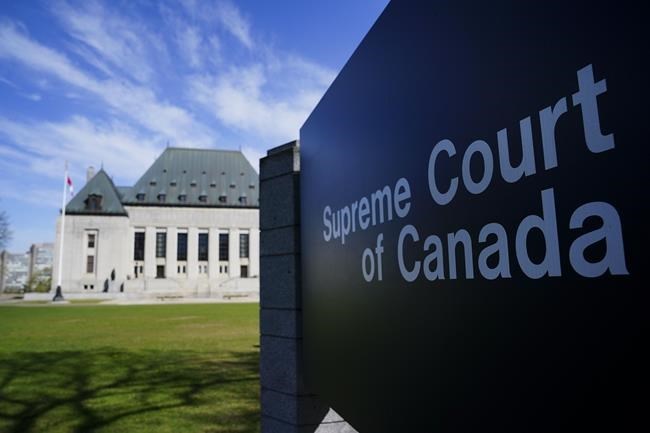OTTAWA — Canada's highest court says two British Columbia companies that thought they were following tax guidelines while trying to protect corporate assets now owe money to the Canada Revenue Agency because a Tax Court reinterpreted the rules.
Eight of nine Supreme Court of Canada justices agree Rite-Way Metals Ltd., and Harvard Industries Ltd, both based in Langley, B.C., can't undo the tax decisions they made in 2008 to create separate family trusts to protect corporate assets.
At the time, a section of the Income Tax Act allowed companies to avoid taxes on dividends if the funds were paid to a family trust, but the Tax Court of Canada made a different decision than what had been commonly accepted by tax professionals.
It meant the Cochrane family trust, created by Harvard Industries, owed taxes on dividends totalling $2,085,000, while the Collins family trust owed taxes on $510,000 in Rite-Way dividends.
The B.C. Supreme Court and Court of Appeal allowed the trusts to undo the decisions, but writing for the majority, Supreme Court of Canada Justice Russell Brown has overturned those rulings and upheld the appeal of the Attorney General for Canada.
Brown writes the courts may intervene if a mistake has been made but can't step in to allow what amounts to retroactive tax planning or to "achieve the objective of avoiding an unintended tax liability."
“Taxpayers should be taxed based on what they actually agreed to do and did, and not on what they could have done or later wished they had done,” says Brown.
The lone high court justice favouring the B.C. court rulings writes that allowing Rite-Way and Harvard to reverse their earlier tax planning is the only remedy available.
"In my view, what takes this case into the zone of unfairness is not the application of the law, but rather the CRA’s discretionary decision to reassess the taxpayers based on a retroactive approach" to the part of the act that allowed family trusts, writes Justice Suzanne Coté.
"Unfairness results when the CRA reverses a long-standing interpretation and then seeks to reassess a taxpayer retroactively," Coté writes.
In addition to settling the unpaid tax bill, the eight-to-one high court decision orders the Cochrane and Collins family trusts to pay the costs of the Attorney General at all court levels of the legal battle.
This report by The Canadian Press was first published June 17, 2022.
The Canadian Press



